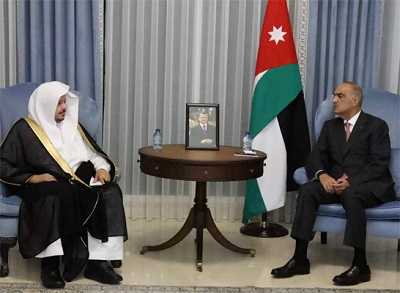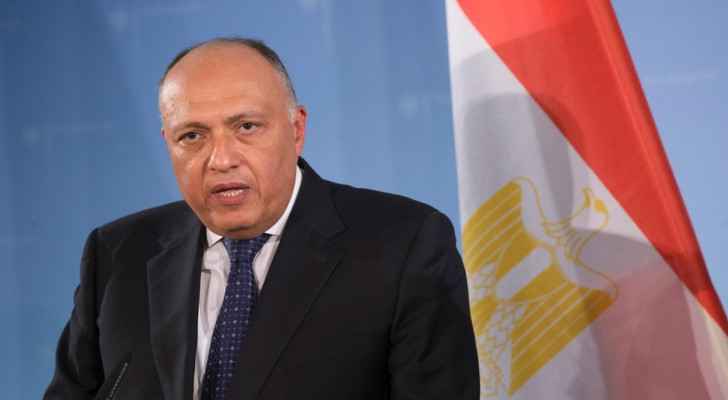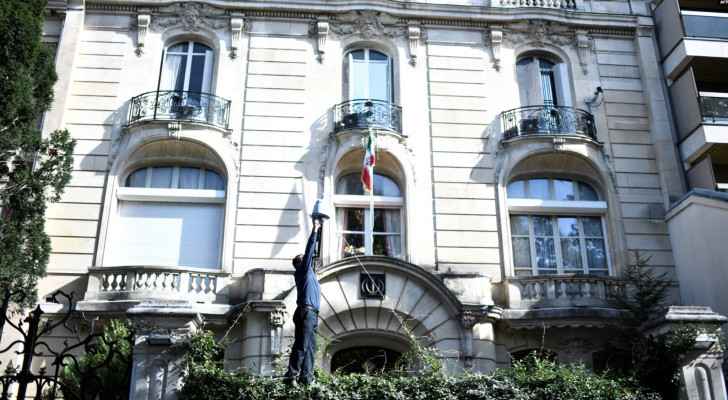Syria Between Russia, Turkey - By Hazem Saghieh, Asharq Al-Awsat
Neighboring Turkey geographically while its regime is politically subservient to Russia is unfortunate for Syria. Adding to their miseries, the country and its people suffer the consequences of the relationship between the neighbor and the guardian. The consequences are most heightened and most costly when Syria becomes the primary issue in this bilateral relationship. This is the case today as the two factions go about using Syrians as bargaining chips.
Though with some difference, but a similar event happened in the late fifties: NATO member Turkey deployed troops on its southern border with Syria, which had broken the west’s monopoly on supplying Arabs with weapons and allied itself with Moscow. Syria, whose real power at the time was in the hands of its military officers, replied by dissolving itself in Nasserite Egypt. For three years, Syria ceased to exist.
The relationship between Turkey and Russia is haunted by a persistent contagion, and there are many historical examples: Since the Ottoman Empire was established, there have been more than ten wars between the two, four in the eighteenth century, four others in the nineteenth century, and one, a major part of the First World War, in the twentieth century.
Making matters worse, the two countries are in the midst of deep identity crises: Turkey is Asian and European, and Mediterranean and Middle Eastern, and with Recep Tayyip Erdogan, the confusion between Islamic and secular, democratic and despotic was exacerbated. Russia also found, in the term “Eurasian”, a verbal solution to a very real contradiction that splits its entire history between Slavic-ness and European-ness. Just like Turkey, it is half democratic and half despotic, half secular and half religious, and its president Putin is no less arrogant than Erdogan.
These two countries, which both sprang from collapsed empires, aspire to glory to which they lack the tools to achieve.
Woe to that who is caught between two factions that are undergoing an identity crisis, of reconciling the past and the present and thus reconciling politics and with the present.
With Bashar al-Assad, it's double trouble, because Syria's bargaining power with either of these parties is almost null. Assad has turned his territory into scorched earth, making it easier for the northern titans to deal with it as such, adding fuel to the fire and displacing even more of its inhabitants.
However, paradoxically, the US presence is the most prominent prerequisite for Russia and Turkey's ambitions, but it is also among the biggest obstacles to the completion of either of the pair's plans. Turkey is far too weak to expel Russia and monopolize influence over the region, while Russia cannot deny Turkey a certain role and presence. This creates a shared feeling between Moscow and Ankara that the US and Europe must be brought in; even though, each of the two capitals has its plan.
This is precisely what was not declared in the most recent Moscow Summit between Putin and Erdogan. According to most observers, a fragile ceasefire was the outcome of the end. As for the secure corridor and joint patrols and so on, they are but details meant to make up lost time. It is, then, a ceasefire agreement between two factions who postponed firing at one another as they wait for Washington.
Taking into consideration the balance of power between the two countries, Moscow’s strategy for bringing in the US is incomparably more cohesive than Turkey’s. The latter, to a large extent, is firing shots blindly: it welcomes SS400s from Russia, going against Washington's wishes, and wants to get anti-aircraft Patriot rockets from the US. It threatens the Kurds but gets surprised by the US's reaction. It exaggerates its pursuit of Fethullah Gulen, who lives in the US and is protected by the Americans. It also keeps trying to convince Europe of the idea of a safe zone while blackmailing it with millions of asylum seekers.
Ankara’s crisis, which Erdogan’s miserable awareness and Turkey’s position and history collaborate to exacerbate, is that it combines opposites in a single strategy. The Turks temporized in the past during the Second World War, saying they were neutral and then saying that they would join the axis. At the Cairo conference in late 1943, Winston Churchill and Franklin Roosevelt tried to entice back-then Turkish President Ismet Inonu to join the allies, but the accession would wait until after the war ended. Its subsequent membership in NATO would weaken the organization as a result of Turkey's conflict with another member, Greece; this worsened after the Cypriot crisis of 1974. With Erdogan, in particular, it's a NATO member and a non-Nato member, European and non-European, all at the same time.
Overall, Syria is paying the price for the Turkish dilemma that is dealt with stupidly and for the Russian dilemma that is dealt with smartly. The result of this combination is burning Syria and displacing its population in cruel and unwelcoming land.
Latest News
 Dubai reels from floods chaos after record rains
Dubai reels from floods chaos after record rains Khasawneh, Saudi Shura Council speaker discuss bilateral ties, regional developments
Khasawneh, Saudi Shura Council speaker discuss bilateral ties, regional developments Egyptian Foreign Minister condemns potential Palestinian displacement as 'war crime'
Egyptian Foreign Minister condemns potential Palestinian displacement as 'war crime' Travelers from Jordan advised to confirm flights amid Gulf weather turmoil
Travelers from Jordan advised to confirm flights amid Gulf weather turmoil France summons Iranian ambassador over strikes against “Israel”
France summons Iranian ambassador over strikes against “Israel”
Most Read Articles
- Dubai reels from floods chaos after record rains
- Security Council to vote Thursday on Palestinian state UN membership
- King, Bahrain monarch stress need to maintain Arab coordination
- Khasawneh, Saudi Shura Council speaker discuss bilateral ties, regional developments
- Hizbollah says struck Israel base in retaliation for fighters' killing
- Jordan will take down any projectiles threatening its people, sovereignty — Safadi
- Tesla asks shareholders to reapprove huge Musk pay deal
- The mystery of US interest rates - By The mystery of US interest rates, The Jordan Times
- Princess Basma checks on patients receiving treatments
- Knights of Change launches nationwide blood donation campaign for Gaza